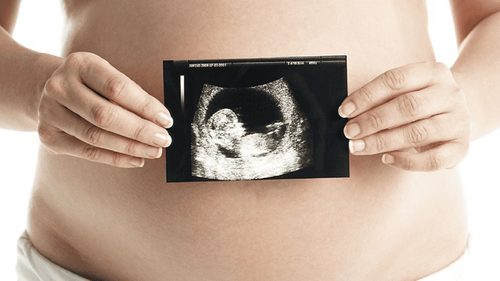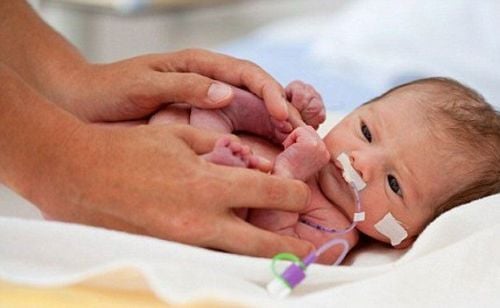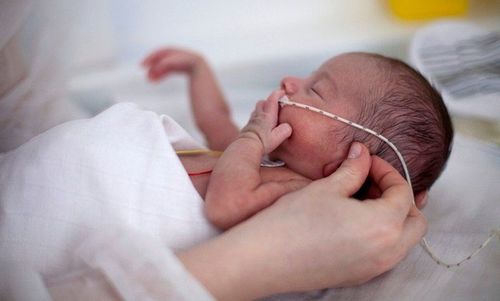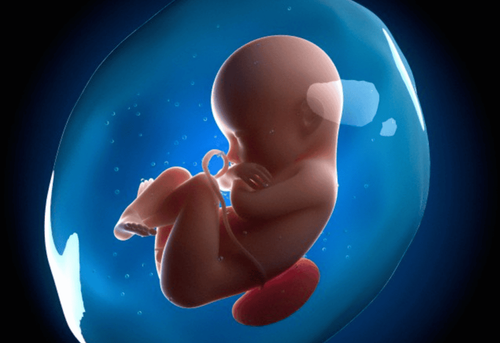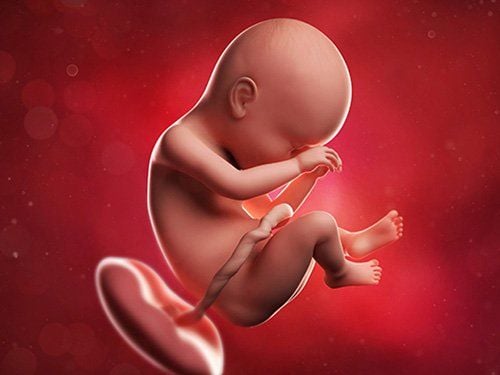This is an automatically translated article.
The article was professionally consulted with Specialist II Cao Thi Thanh - Pediatrician - Pediatrics - Neonatology - Vinmec Hai Phong International General Hospital.According to the World Health Organization (WHO): A baby is considered premature when born between 22-37 weeks (counting from the first day of the last menstrual period). The fewer weeks a baby is born prematurely, the higher the risk of health problems, including temperature problems and digestive disorders.
1. What is premature birth?
Babies are born prematurely when they are born between 22 and 37 weeks of pregnancy. The earlier the baby is born, the more serious the health risks, which include:Low birth weight. Children's lungs are immature, so they are prone to respiratory failure and death. If the child survives, he is also susceptible to respiratory diseases later on such as pneumonia, bronchitis, pulmonary dysplasia... The child has not yet fully developed physically and mentally. Susceptibility to congenital defects such as congenital heart, blindness, deafness, etc. In addition, when growing up, premature infants may have obvious or potential neurological sequelae and are often a burden on psychology and finances for parents.
Mothers can diagnose premature labor by signs such as: Heaviness in the abdomen or abdominal pain; Pink mucus or cervical mucus; Low back pain, abdominal cramps may be accompanied by diarrhea....
Trắc nghiệm: Thế nào là trẻ sơ sinh non tháng?
Trẻ sơ sinh non tháng rất cần được chăm và điều trị thật tốt để giúp giảm nguy cơ gặp phải các di chứng về tinh thần, vận động và sự phát triển sau này. Cùng theo dõi bài trắc nghiệm dưới đây để có thể nhận biết trẻ sơ sinh non tháng và có thêm kiến thức chăm sóc, nuôi dưỡng tốt nhất cho trẻ.The following content is prepared under supervision of Thạc sĩ, Bác sĩ y khoa, Ma Văn Thấm , Nhi , Phòng khám Đa khoa Quốc tế Vinmec Dương Đông(Phú Quốc)
2. Causes of preterm birth
Over 50% of preterm labor cases have no known reason. Some factors can cause premature birth:From the mother's side:
Due to a history of multiple premature births, a history of miscarriage
Due to adverse factors from the mother such as: poor diet, malnutrition, smoking leaves, drinking alcohol, doing hard labor. Besides, there are also some chronic diseases from the mother: high blood pressure in pregnancy, kidney disease, type 1 diabetes, anemia. Certain autoimmune conditions increase the risk of preterm labor (eg, autoimmune thyroid disease, intestinal infections). However, the relationship between autoimmune diseases and preterm birth requires further study.
Due to each other: placenta previa, placental abruption, placental insufficiency.
Due to cervix, uterus: Short cervix, surgery on the cervix, congenital or acquired malformation of the uterus, cleft palate.

Intrauterine growth retardation is also associated with spontaneous preterm birth or indications for termination of pregnancy when the infant is born preterm. The main causes of preterm birth due to pregnancy include:
Fetal malformation: Fetal malformation is one of the causes of preterm birth. The cause may be a consequence of a fetal malformation that increases the risk of preterm labor (polyhydramnios due to esophageal stricture) or a malformation that indicates early termination of pregnancy. In addition, male sex is also a favorable factor for natural preterm birth. Two histological studies of the placenta showed that the placenta of boys has a higher prevalence of chronic inflammation than the placenta of girls. The authors suggest that it is possible that the mother's immune system is more responsive to the boy's tissues than the girl's.
3. Common problems of premature babies and how to handle them
3.1. Body temperature disorder
Hypothermia increases the risk of infant mortality. Therefore, the prevention of hypothermia in infants is very necessary. Normally, when the fetus is in the womb, the body temperature is usually 0.5 to 1 degree Celsius higher than the mother's, so right after birth, the baby is at risk of hypothermia very quickly. For premature and low birth weight babies, the insulation layer is reduced and the subcutaneous fat layer is lacking, so the increase in skin temperature causes a large temperature difference, which increases heat loss.Therefore, when nursing, parents need to pay attention to how to warm, dress, swaddle properly, avoid getting the baby wet, always dry and clothe the baby, otherwise the heat loss makes the baby susceptible to illness. heat loss. The temperature in the baby's room is at least 30-32 degrees Celsius in the first week and 28-29 degrees Celsius in the following weeks. The baby needs to lie down with the mother because the higher mother's skin temperature will transmit heat to the baby. Use warm incubators such as incubators, warm packs... or incubate the mother's chest according to the kangaroo method in case the baby needs to be moved.
In the case of a child with hyperthermia, the cause is that the infant's thermoregulatory center is not yet complete, then the child's body temperature is above 38 degrees Celsius, the skin is hot and red, and sweaty. In addition, the child has increased heart rate and breathing rate, causing respiratory failure and dehydration.
At that time, parents need to lower the temperature in the room immediately, take off some clothes, pay attention to avoid drafts and breastfeed immediately. Then it is necessary to check if there is something causing this condition, for example: Warming too carefully, the temperature in the room is too high, or the child has an infection in the navel, throat, ... if the condition does not improve. need to take the baby to a medical facility to be checked.
3.2. Digestive disorders
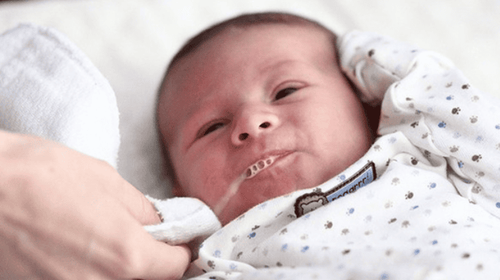
Any abnormal phenomenon Usually in premature babies, even small ones, they must be detected and recorded early for timely treatment.
The Maternity Package at Vinmec International General Hospital helps customers complete antenatal check-ups and necessary tests during pregnancy, in order to minimize the risk of preterm birth. Customers registered for Maternity Package are fully cared for and checked for health of mother and baby before birth - during childbirth and after birth, fully and conscientiously.
Please dial HOTLINE for more information or register for an appointment HERE. Download MyVinmec app to make appointments faster and to manage your bookings easily.






